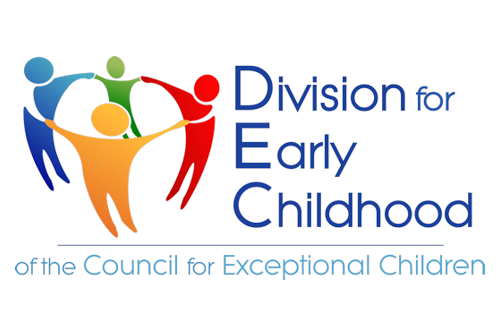DEC Recommended Practices are for families too!
The Division for Early Childhood. (2014). DEC recommended
practices in early intervention/early childhood special
education 2014 were developed to provide guidance to practitioners
and families about the most effective ways to improve the
learning outcomes and promote the development of young children,
birth through age 5. The recommended practices consist of eight
domains: assessment, environment, family, instruction, interaction,
leadership, teaming, and transition. The Recommended Practices
are versatile, engaging and provide families ways to remain as
active participants, and promote working in collaboration with
their Early Intervention Providers. They are formatted for print
as well as for viewing on mobile devices and they are available
in Spanish.
Assessment Practice Guides for Families
The purpose of a child assessment is to gather information for
identifying a child’s strengths and challenges in everyday
activities, making decisions about a child’s eligibility for
intervention services, developing intervention plans, or monitoring
child progress. Parents are members of the assessment team and
play an important role in identifying the assessment process by
providing insights throughout the assessment about a child’s
strengths, abilities, interests, and challenges. These Recommended
Practices will help you prepare for the evaluation and reevaluation
process in Birth to Three.
»
Visit ECTA Center
»
Watch video
Environment Practice Guides
Young children learn best when they have many chances to participate
in everyday activities, they find interesting where adults respond
to their children’s behavior in ways that help them practice things
they can do and try doing new things. The Environment Recommended
Practices will help you identify how your child learns naturally in
everyday activities.
»
Visit ECTA Center
»
Watch video
Family Practice Guides for Families
You and your family should expect to be treated in certain ways
and be actively involved in decision-making and actions to achieve
the outcomes and goals you have for your family and for your child.
This practice guide includes things that are helpful to know about
family-centered practices, obtaining resources and making good family
choices.
»
Visit ECTA Center
»
Watch video
Instruction Practice Guides for Families
Parents can teach their children in so many ways. When you want
to help your young child learn a very specific behavior, you can
achieve success using a well-planned, focused teaching method
called Systematic Instruction. The instruction Recommended Practices
for Families focus on how you can follow you child’s lead and
participate in activities based on their interests and creating
intentional learning opportunities at home and in your community.
»
Visit ECTA Center
»
Watch video
Interaction Practice Guides for Families
Interaction practices are at the center for promoting the
development of your child’s language, cognitive and emotional
wellbeing. Young children learn through interaction, and for
young children with developmental delays this interaction is
critical to foster their social-emotional competence, communication,
problem solving, cognitive development. The Interaction Practice
Guides for families will show you how to engage in parent-child
social games, communicating with gestures and signs, language
development games and child social communication.
»
Visit ECTA Center
»
Watch video












